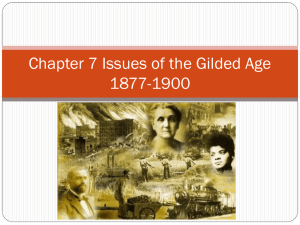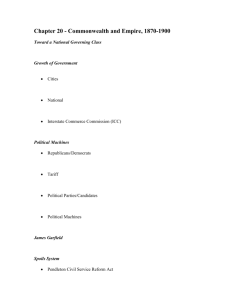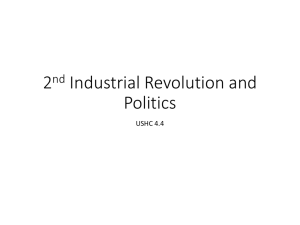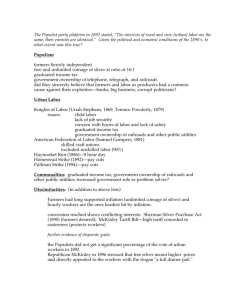US History Lesson Plan
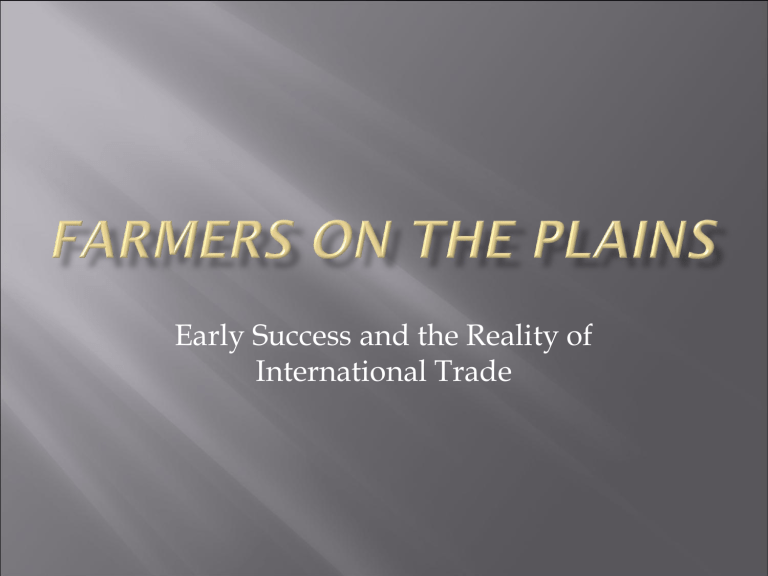
Early Success and the Reality of
International Trade
Early Success
Easy Credit Terms
Railroads promoted land and credit
Several successful years for small and large commercial farmers – International business
Lots of rainfall and good crops worldwide
But gradually climate dried and land failed.
Supply rises, prices fall and farmers produce more, to make up in volume what they lost in price.
Big grain supply allowed railroads to hike prices on all farmers, cutting deeply into profits.
Borrowed “Cheap” money and heavily in debt.
Sought Government help through regulation
The Grange, Farmers Alliances and the beginning of Populism
During Reconstruction (1875), Congress pulled money –
Greenbacks - out of circulation - back to gold standard.
So money increases in value again – bad for farmers.
They had borrowed with ‘cheap money’ not backed by gold but must pay back with more valuable money that
is based on gold.
Once again farmers push for ‘cheap money’.
Railroad monopolies (no competition) allowed charging of any prices they demanded.
Secret deals with storage companies & middlemen on rates allowed agents to charge high prices to farmers.
Wheat prices fell in late 1870s when money increased in value AND when international competition increased.
Paying high prices for freight & receiving low prices for crops hurt profits and kept them in debt.
Patrons of Husbandry - Oliver Kelley - 1867
Grange – a farmers organization for education
- Fight railroads’ high pricing
- Teach farmers how to organize
- Set up farm co-operatives
- Elect officials to speak for their interests
- Sponsor state legislation
Farmers Alliance – 4 Million Members
1892 – Populist Party – formed in Omaha, Nebraska out of farmers’ alliance movement
Sought political power for farmers – supported…
- Graduated income tax
- Cheap money to pay debt easier
- Federal loan programs
- Restrictions on immigration
- Direct election of senators
- 8 hour workday
Important contributions to Democrats in later years
Challenged ‘laissez-faire’ capitalism.
Rejected idea that the rights of business ownership were considered absolute (do what they want).
Supported Industrialism and Capitalism but believed it was developing in brutal and chaotic ways.
Growth should be more guided by needs of people and their communities.
Bimetallism – making currency based on silver and gold.
Free Silver - money exchanged for either metal makes more money available – and thus cheaper - because more silver than gold was available. (Debt repayment)
Big issue in Presidential Campaign of 1896
William Jennings Bryan makes ‘Cross of Gold’ Speech
McKinley beats Bryan and Populism fades until Roosevelt

